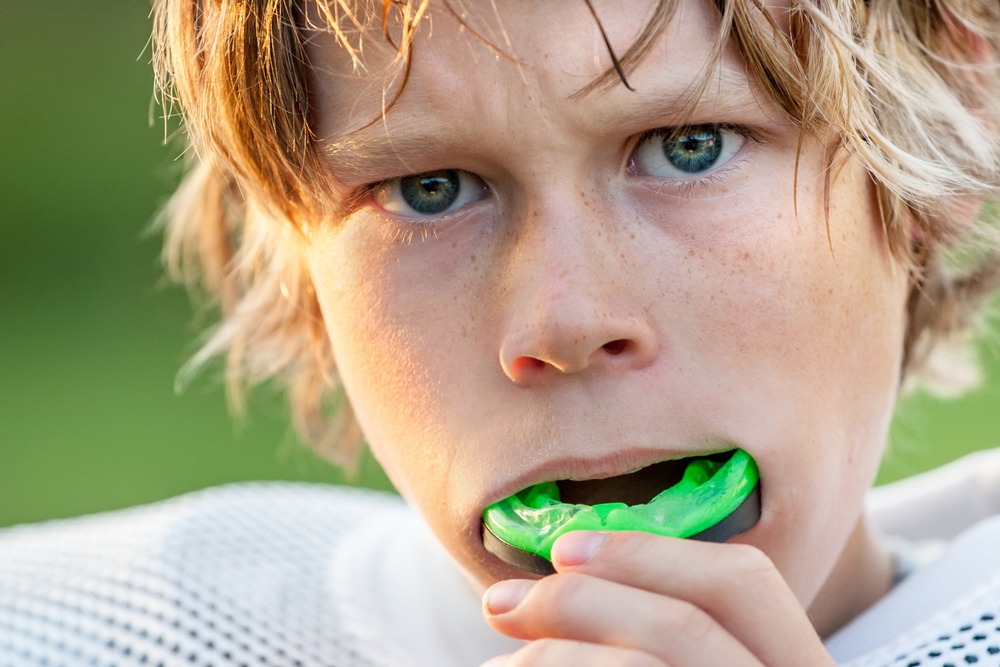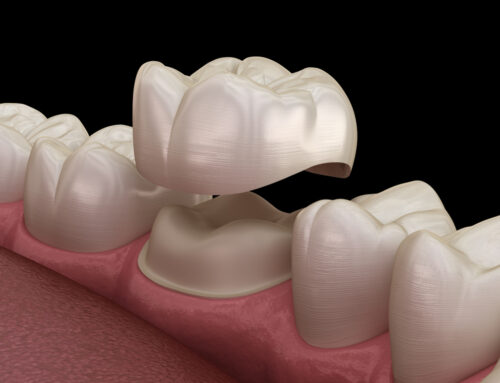As the weather gets warmer, more and more people will be getting outside to play their favorite sports. While sports are a great way to stay in shape while having some fun, it’s important to remember that the potential for injury exists even in casual play. Your teeth are especially at risk; in fact, the National Youth Sports Foundation for Safety reports that dental injuries are the most common type of orofacial injury sustained while participating in sports, and that an athlete is 60 times more likely to suffer an injury to the teeth when they are not wearing a mouthguard.
Here are some reasons you should wear a mouthguard when playing any sport – even non-contact sports – and some of the injuries you could sustain if you don’t wear one:
Tooth Injuries in Sports
Of the more than 5 million tooth injuries sustained every year, a large percentage occur while playing sports. A study published in the Journal of the American Dental Association reported that up to 39% of all dental injuries are related to sports. Mouthguards are critical for preventing these injuries. As an example, since high school and college football players were required to wear mouthguards in 1962, the incidence of orofacial injuries in these athletes dropped from 50% to 0.5%. Nonetheless, many athletes still choose not to wear mouthguards. Despite the rules in place, only about two-thirds of football players wear mouthguards. In non-contact sports, that percentage is even lower, with only 7% of soccer, baseball, and softball players choosing to wear mouthguards.
Most Common Tooth Injuries in Sports
- Fractures – This includes root fractures, broken teeth, and chipped teeth. If left untreated, root fractures and breaks can result in the loss of the tooth. Chipped teeth can be repaired, but if the chipped portion cannot be found, restorative dentistry procedures will be needed to get it back to its original appearance.
- Avulsions – This is when the entire tooth is knocked out, including the root. If the tooth can be found, it is possible to reinsert it into the socket, but if professional treatment is not administered within 30 minutes, the tooth can be lost forever.
- Luxations – This occurs when the tooth is pushed out of position. An extruded tooth is pushed out of the socket, causing it to appear longer than the other teeth. A laterally displaced tooth is pushed back or pulled forward, causing it to be out of alignment with the other teeth. An intruded tooth is pushed down into the gums.
Preventing and Treating Tooth Injuries
The best way to prevent injuries to your teeth is by wearing a mouthguard, even if you are playing a non-contact sport. Accidents and falls can always happen, whether you are playing competitively or you are playing a pickup game with friends.
If you have sustained a tooth injury while playing sports, it is crucial that you receive treatment as quickly as possible. For residents of New Jersey and the Philadelphia area, ZDental has five locations to treat you, and we are available for dental emergencies. Call us at (215) 462-6229 if you need emergency dental care in Philadelphia or visit our contact page to find our other clinics in your area.



Leave A Comment